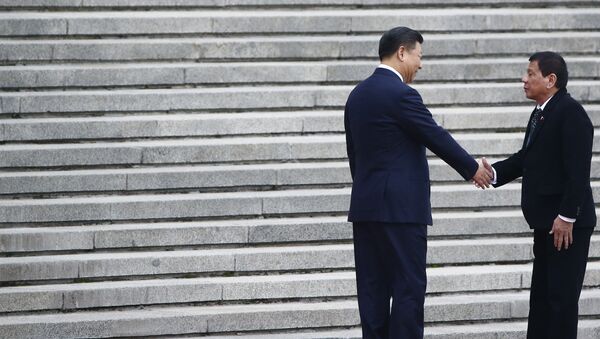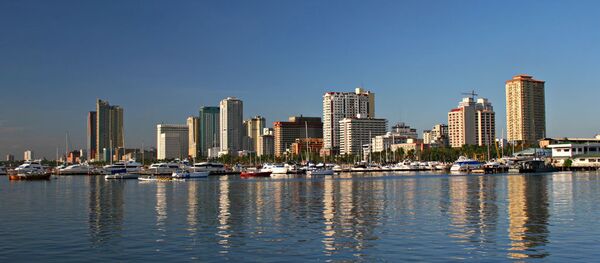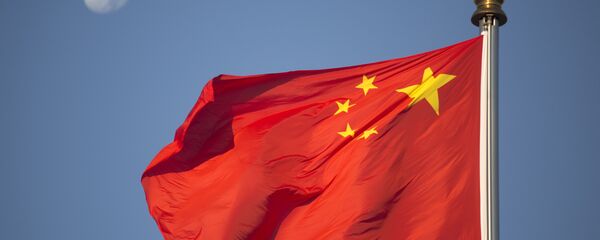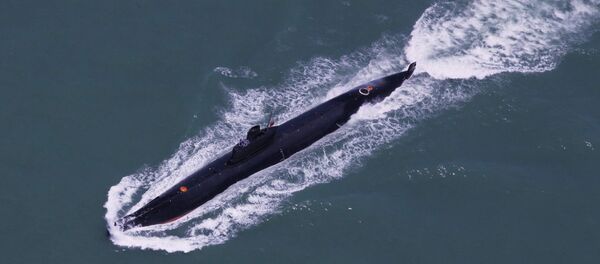The upcoming visit by the Chinese vice premier will take place less than a month after the February 23 visit to Manila by a representative of the Chinese delegation led by the Minister of Commerce was postponed last minute.
The Chinese side explained the delay as “problems in planning.” On the same day, however, it was announced that there would be changes taking place in the Chinese Ministry of Commerce.
Meanwhile, observers suggested that China postponed the signing of a large package of agreements on economic and investment cooperation with the Philippines because of unflattering statements made by Philippine Foreign Minister Perfecto Yasay Jr. regarding South China Sea issues.
Nevertheless, Wang Yang's upcoming visit confirms that both sides have managed to turn the page in their bilateral relations.
Andrei Volodin, an expert at the Institute for Topical International Problems of the Russian Foreign Ministry’s Diplomatic Academy, told Sputnik that the Sino-Philippine economic dialogue demonstrates that the Philippines have now set its course on the so-called “free geometry” of international relations.
“Like any small and medium-sized country, they [Filipinos] are using the contradictions between great powers — the US and China. They do so in their economic and geopolitical interests,” Volodin said.
Pence plans to visit Japan, South Korea, Indonesia and Australia. An expert from Moscow State University, Alexey Fenenko, said that there are two possible reasons for why the Philippines is not on that list.
“Firstly, it appears that the US simply does not consider the current president of the Philippines as a privileged partner. Secondly, such a visit of the US vice-president to the Philippines could lead to a complication of the situation in the South China Sea,” Feneko said.
He further said that despite confrontation in the South China Sea no one wants a full-fledged war in that region and China understands that the severance of relations with the Philippines may lead to an open armed conflict in the region.
Director of the Center for South Pacific Studies at the Chinese Institute of International Affairs Shen Shishun, also believes that the importance of the China-Philippines economic dialogue goes beyond the framework of just bilateral relations.
“The visit of Vice Premier Wang Yang to the Philippines clearly reflects the desire of both countries to develop interstate relations. Therefore, this visit will undoubtedly help reformat and strengthen ties between the two countries. The trip can be called a landmark,” Shishun said.
He further said that after the rise to power of Rodrigo Dutherte, the Philippines government is basically pursuing a policy of actively developing friendly relations with China.
According to the director, China is also making it clear to the ASEAN states that it wants further deepening of multi-vector cooperation with the ASEAN countries especially in the development of this region through the implementation of the “One belt, One Road” concept.
“Based on current tendencies, the US and Japan are still trying to take new steps to win over the Philippines in the field of diplomacy and economics. However, such efforts are not capable of influencing development of the Sino-Philippines relations. From the past historical experience, Duterte learned a lesson that only development of friendly relations with China can meet the fundamental interests of the people of the two countries,” Shishun said.
According to the director, Philippine President Rodrigo Duterte is an experienced politician who understands that China is not an enemy but a reliable comrade of the Philippines.
“During the visit of Wang Yang to the Philippines, the Chinese delegation will be given a warm welcome. We can assume that after this visit, friendly ties between the two countries will rise to a new level,” the director concluded.






